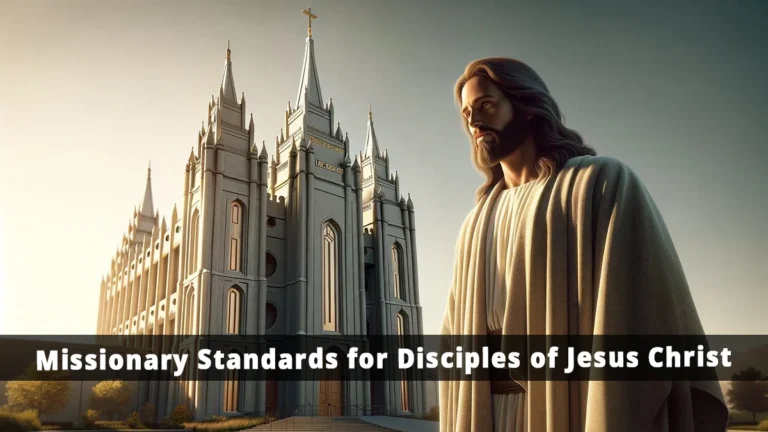Use Coupon FLAT10 for 10% OFF on Order over $100.
Jesus Teachings on Forgiveness: A Christian Perspective
Explore the profound concept of forgiveness in Christian theology, rooted in Jesus teachings on forgiveness. Learn about its biblical basis, key scriptures, and practical steps to embrace forgiveness in daily life for healing and reconciliation.

Forgiveness is a fundamental concept in Christian theology, deeply rooted in the teachings of Jesus Christ. It represents the act of pardoning an offender and letting go of resentment or revenge. Jesus emphasized forgiveness as a crucial aspect of spiritual life and personal growth. In today’s world, where conflicts and grievances are prevalent, understanding and practicing forgiveness can lead to healing and reconciliation.
Biblical Basis of Forgiveness
Old Testament References to Forgiveness: Forgiveness is mentioned throughout the Old Testament, often linked with God’s mercy and compassion. Key examples include the story of Joseph forgiving his brothers (Genesis 50:17-21) and the recurring theme of God forgiving the Israelites despite their repeated disobedience (Exodus 34:6-7).
New Testament Teachings on Forgiveness: The New Testament places a stronger emphasis on forgiveness, with Jesus’ teachings and actions serving as the primary examples. Key scriptures include Matthew 6:14-15, where Jesus explains that forgiveness from God is tied to our willingness to forgive others, and Ephesians 4:32, which urges believers to forgive as God has forgiven them in Christ.
Key Scriptures Related to Forgiveness
- Matthew 18:21-22: “Then Peter came to Jesus and asked, ‘Lord, how many times shall I forgive my brother or sister who sins against me? Up to seven times?’ Jesus answered, ‘I tell you, not seven times, but seventy-seven times.'”
- Luke 23:34: “Jesus said, ‘Father, forgive them, for they do not know what they are doing.”
Jesus Teachings on Forgiveness
Sermon on the Mount: In the Sermon on the Mount (Matthew 5-7), Jesus outlines the principles of the Kingdom of God, emphasizing the importance of forgiveness. He teaches that harboring anger is akin to committing murder and that reconciliation with others should be prioritized even before offering gifts at the altar (Matthew 5:21-24).
Parables About Forgiveness: Jesus used parables to illustrate the importance of forgiveness. The Parable of the Prodigal Son (Luke 15:11-32) and the Parable of the Unforgiving Servant (Matthew 18:21-35) are two key examples that highlight God’s boundless mercy and the necessity of forgiving others.
Specific Instances of Jesus Forgiving Others: Jesus demonstrated forgiveness throughout His ministry. Notable examples include forgiving the woman caught in adultery (John 8:1-11) and offering forgiveness to those who crucified Him (Luke 23:34).
Forgiveness and Salvation
Connection Between Forgiveness and Salvation: Forgiveness is intrinsically linked to salvation in Christian theology. Jesus’ death and resurrection provided the ultimate means for humanity’s forgiveness, reconciling them to God (Romans 5:10).
Role of Repentance in Forgiveness: Repentance, or turning away from sin, is a key component of receiving God’s forgiveness. Jesus called people to repent and believe in the Gospel (Mark 1:15).
Jesus’ Sacrifice and Its Significance for Forgiveness: Jesus’ sacrificial death on the cross is central to Christian beliefs about forgiveness. By bearing the sins of the world, Jesus made it possible for people to be forgiven and restored to a right relationship with God (1 Peter 2:24).
Types of Forgiveness
Divine Forgiveness: Divine forgiveness is the forgiveness granted by God to humanity. It is a central theme in the Bible, highlighting God’s mercy and love (1 John 1:9).
Self-Forgiveness: Self-forgiveness involves letting go of personal guilt and accepting God’s forgiveness. It is essential for spiritual and emotional well-being (Psalm 103:12).
Forgiving Others: Forgiving others is a commandment in the Bible, reflecting God’s forgiveness toward us (Colossians 3:13).
Forgiveness in Community: Forgiveness within a community fosters unity and healing. The early church emphasized reconciliation and forgiveness among believers (Ephesians 4:3).
The Lord’s Prayer
The Lord’s Prayer, found in Matthew 6:9-13, includes a crucial focus on forgiveness: “And forgive us our debts, as we also have forgiven our debtors.” This highlights the reciprocal nature of forgiveness, where seeking God’s forgiveness is tied to our willingness to forgive others.
The practical implications are profound. It encourages self-reflection and humility, reminding us to release grudges and extend grace, just as we seek grace from God. By practicing forgiveness, we promote healing, harmony, and stronger relationships. The prayer fosters a spirit of compassion and empathy, guiding us to live in accordance with divine principles of mercy and love.
The Parable of the Prodigal Son
The Parable of the Prodigal Son, found in Luke 15:11-32, tells the story of a younger son who demands his inheritance, squanders it in reckless living, and returns home destitute. Expecting to be treated as a servant, he is instead welcomed with open arms by his forgiving father, who celebrates his return. The older brother, resentful of this forgiveness, is gently reminded by the father of the joy in the return of a lost family member.
This parable teaches profound lessons on forgiveness: it highlights the boundless, unconditional love and mercy of God, who eagerly forgives and restores those who repent. It also emphasizes the importance of forgiving others and rejoicing in their redemption, promoting reconciliation and compassion within relationships.
The Unforgiving Servant Parable
The Parable of the Unforgiving Servant, found in Matthew 18:21-35, tells of a king who forgives a servant’s massive debt. However, this servant refuses to forgive a small debt owed to him by another servant. When the king learns of this, he punishes the unforgiving servant. This parable teaches profound lessons on forgiveness: it underscores the boundless mercy God extends to us and the expectation that we, in turn, should forgive others. It highlights the consequences of unforgiveness, showing that a lack of mercy can lead to harsh repercussions and spiritual distress. The parable emphasizes the importance of compassion and the reciprocal nature of forgiveness.
Jesus Crucifixion and Forgiveness
Jesus’ forgiveness on the cross is a profound act of mercy and grace. In Luke 23:34, Jesus says, “Father, forgive them, for they do not know what they are doing,” extending forgiveness to those who crucified Him. This ultimate act of forgiveness demonstrates His unconditional love and sets a powerful example for humanity. The impact of Jesus’ forgiveness is immense, offering redemption and the promise of salvation. It teaches us the importance of forgiving others, fostering reconciliation, and transforming lives. Jesus’ sacrifice and forgiveness on the cross provide a path to spiritual healing and eternal life, inspiring believers to embrace forgiveness in their own lives.
Forgiveness and Healing
Forgiveness is deeply connected to emotional healing, as letting go of grudges and resentment brings peace and relief. It alleviates stress, reduces negative emotions, and promotes mental well-being. In the Gospels, Jesus exemplifies this connection. In Luke 23:34, Jesus forgives his executioners, demonstrating that forgiveness leads to inner peace despite suffering. Another example is the healing of the paralytic in Mark 2:5, where Jesus first forgives his sins before physical healing. These stories illustrate that forgiveness is a pathway to holistic healing, emphasizing the transformative power of letting go and embracing compassion.
Challenges in Forgiveness
Forgiveness can be challenging due to common obstacles like pride, resentment, and a desire for revenge. The pain of betrayal or hurt can make it hard to let go. Trust issues and fear of recurrence also hinder forgiveness. Biblical advice for overcoming these obstacles includes praying for strength and guidance, reflecting on Jesus’ teachings of mercy, and seeking comfort in scriptures like Ephesians 4:32, which encourages kindness and compassion. Emulating Christ’s example of unconditional forgiveness helps to soften hearts. By embracing humility and seeking divine assistance, one can overcome these challenges and embrace a forgiving spirit.
Forgiveness in Daily Life
Practicing forgiveness in daily life involves several practical steps: recognizing the hurt, expressing your feelings, and deciding to forgive. Reflect on the benefits of forgiveness, such as emotional healing and peace. It’s essential to empathize with the offender and let go of resentment, choosing to release the burden. Forgiveness is crucial in personal relationships as it fosters understanding, strengthens bonds, and promotes emotional well-being. It reduces stress and prevents conflicts from escalating, paving the way for reconciliation and harmony. Embracing forgiveness nurtures a positive environment, allowing love and trust to flourish, and enhances overall happiness and personal growth.
Frequently Asked Question
Why is forgiveness important in Christianity?
Forgiveness is central to Christian teachings because it reflects God’s mercy and is essential for spiritual growth and reconciliation.
How often should we forgive others?
Jesus taught to forgive “seventy-seven times,” symbolizing limitless forgiveness (Matthew 18:22).
Can all sins be forgiven?
Yes, all sins can be forgiven through repentance and faith in Jesus Christ (1 John 1:9).
What if someone doesn’t ask for forgiveness?
Christians are called to forgive others regardless of whether they seek forgiveness, following Jesus’ example (Mark 11:25).
How can I forgive someone who hurt me deeply?
Forgiveness is a process that may require prayer, counseling, and a reliance on God’s strength to release anger and seek reconciliation.
Gifts by Jesus Final Thought
Forgiveness, as taught by Jesus, is essential for spiritual growth, emotional healing, and healthy relationships. It is rooted in God’s unconditional love and mercy.
Believers are encouraged to practice forgiveness daily, seeking God’s help and following Jesus’ example to foster peace and reconciliation in their lives.



